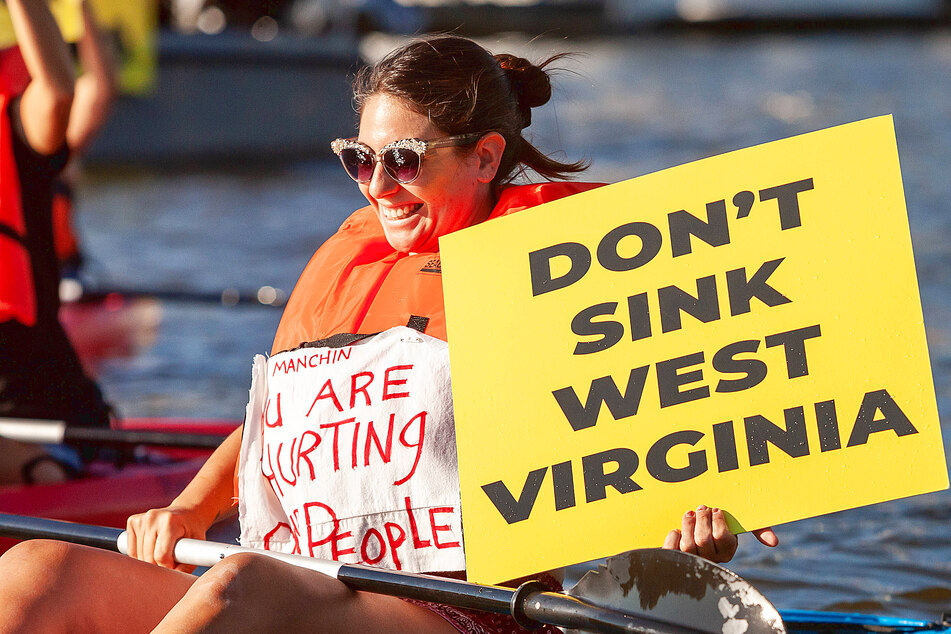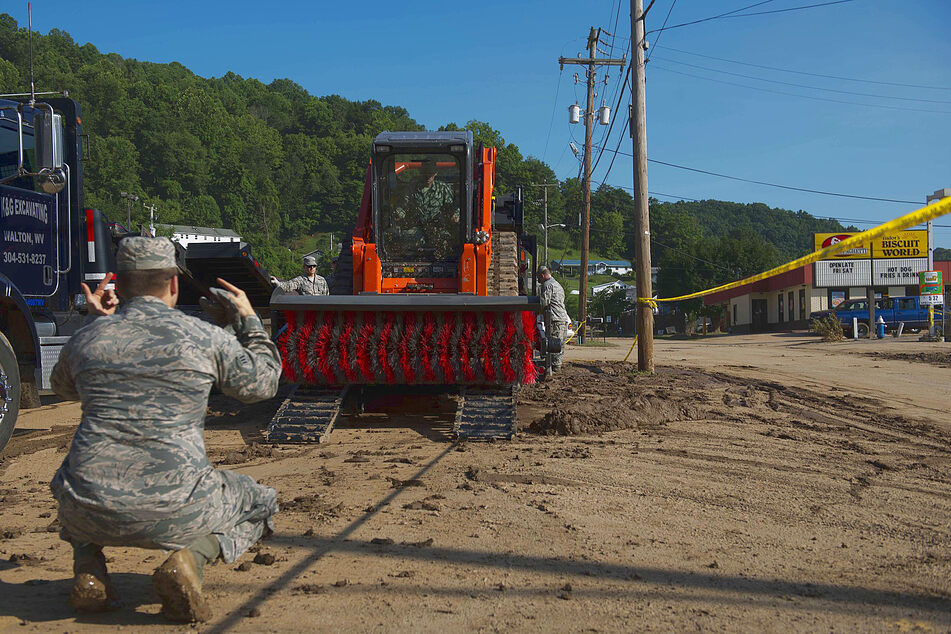West Virginia under water: New report shows consequence of Manchin blocking climate action
Farmington, West Virginia - Joe Manchin's own hometown is suffering from floods, as are nearby communities in West Virginia, which is at risk from severe flooding. A new report shows just a dire snipped of future consequences, as the senator continues to block the Biden administration's climate plans.

As Manchin digs in his heels on meaningful climate action, his state is suffering from worsening floods due to climate change, a New York Times report shows.
Floods submerged parts of West Virginia in recent years, and even led to people leaving, unable to afford rebuilding or repairing their homes. Community leaders and business owners have said they can't afford another flood.
Communities and residents aren't the only parts of West Virginia at risk.
The NYT report also details the severe danger the state's infrastructure faces, including emergency response stations, roads, and power plants.
Well over half the flood-prone state's power stations are at risk, which is the highest figure across the nation, and over double the average.
Worse, almost 50% of West Virginian roads are at risk due to flooding, compounding the problem for the state's residents, who don't have many options to relocate during a flood if roads are inaccessable.
What makes flooding so bad in WV?

Some parts of West Virginia experience flooding after only a few inches of rainfall in an hour, in part because of low-quality sewage systems that pump waste water back into homes.
Another part of the issue is the increase in sediment and detritus in rivers and streams, which effectively lowers the amount of rain the waterways can store before spilling over their banks.
To make matters worse, climate change has warmed the air, which lets it hold more moisture. The more moisture in the air, the more often intense rainfall pelts the state.
And West Virginia currently has the dubious honor of being in the top 4 states at risk for flooding.
And yet, Manchin has stated that he is staunchly against the clean energy program that would have been part of the $3.5 trillion dollar spending package, even though that energy program is specifically tailored to take action to fight climate change.
But without a transition to green energy, flooding in West Virginia is likely to only get worse.
Cover photo: IMAGO/NurPhoto
